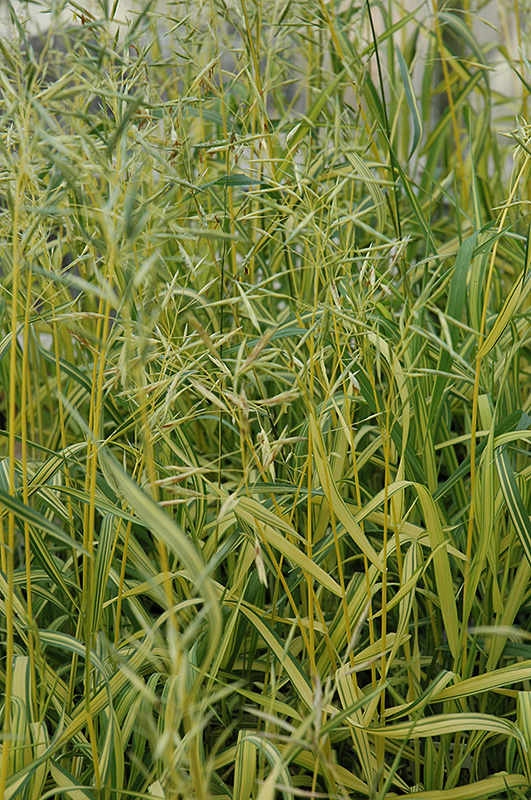Plant Search Tool
This is a 3rd party Knowledgebase and does not reflect actual stock
Skinner's Gold Brome Grass
Bromis inermis 'Skinner's Gold'
Height: 12 inches
Spread: 3 feet
Sunlight:
![]()
![]()
Hardiness Zone: 2a
Other Names: Broom Grass
Description:
A lovely easy to grow ornamental grass that shows off green and yellow variegated leaves; a cool season performer with excellent drought tolerance; a great addition to containers, landscapes of borders
Ornamental Features
Skinner's Gold Brome Grass' attractive grassy leaves are green in colour with showy yellow variegation on a plant with an upright spreading habit of growth. The foliage often turns tan in fall. The brown seed heads are carried on spikes in mid summer.
Landscape Attributes
Skinner's Gold Brome Grass is a dense herbaceous perennial grass with an upright spreading habit of growth. Its relatively fine texture sets it apart from other garden plants with less refined foliage.
This is a high maintenance plant that will require regular care and upkeep, and can be pruned at anytime. Gardeners should be aware of the following characteristic(s) that may warrant special consideration;
- Invasive
Skinner's Gold Brome Grass is recommended for the following landscape applications;
- Groundcover
- Naturalizing And Woodland Gardens
Planting & Growing
Skinner's Gold Brome Grass will grow to be about 12 inches tall at maturity, with a spread of 3 feet. It grows at a fast rate, and under ideal conditions can be expected to live for approximately 10 years. As an herbaceous perennial, this plant will usually die back to the crown each winter, and will regrow from the base each spring. Be careful not to disturb the crown in late winter when it may not be readily seen!
This plant does best in full sun to partial shade. It is very adaptable to both dry and moist locations, and should do just fine under typical garden conditions. It is considered to be drought-tolerant, and thus makes an ideal choice for a low-water garden or xeriscape application. It is not particular as to soil type or pH, and is able to handle environmental salt. It is highly tolerant of urban pollution and will even thrive in inner city environments. This is a selection of a native North American species. It can be propagated by division; however, as a cultivated variety, be aware that it may be subject to certain restrictions or prohibitions on propagation.






